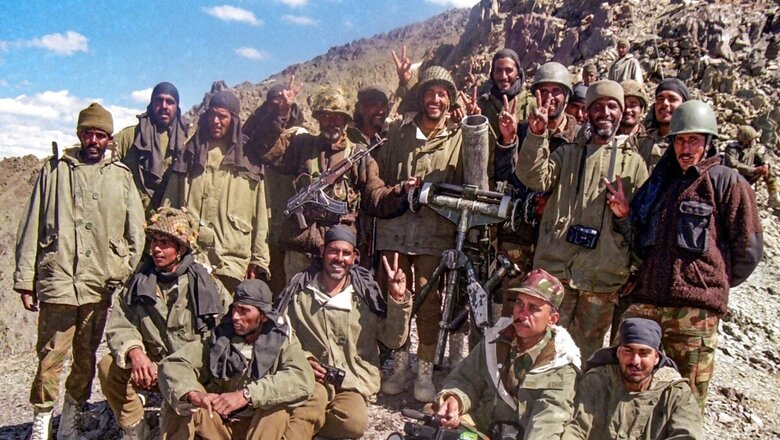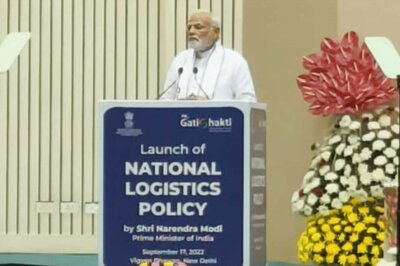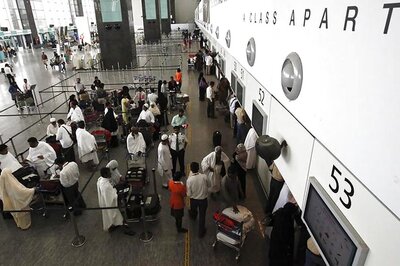
views
Back in the summer of ’99, having just taken my PUC exams in Mangalore, little did I know that an event about to unfold at the crown of my country would define the course of my life. The Kargil War of 1999, those 85 days of India’s battle with our nasty terror-friendly neighbour Pakistan, rewrote not just India’s global perception dynamics but also inspired a whole generation of youth like myself to serve this land, donning the olive green.
None around me had known or thought I would join the army when I did, but the word ‘captain’ had stuck in my ears as I turned 18 after the summer of ’99, thanks to Captain Saurabh Kalia and Captain Manoj Kumar Pandey. The following year, I participated in the Republic Day parade as an NCC cadet, marching in front of Prime Minister Atal Bihari Vajpayee and our Defence Minister, fellow Mangalorean George Fernandes. This further fuelled my desire to join the fauj. And join I did in 2002, serving as part of the Short Service Commission and retiring as a ‘captain’.
Captain Saurabh Kalia was the first Indian Army officer to be killed in the Kargil War, and the brutality of the torture inflicted upon him by the enemy nation, who had taken him as a prisoner of war (POW), boils the blood of every fauji and civilian alike. Along with five other soldiers, the 23-year-old Captain Kalia was captured by Pakistani forces after an encounter. After almost three weeks of captivity, when their bodies were returned, a postmortem revealed torture that no POW should ever endure: “burns inflicted by cigarettes, eardrums pierced by hot rods, broken bones and teeth, removal of eyes before puncturing them, chopped limbs and private organs, and being shot to death.”
Another young officer, Captain Manoj Pandey PVC, commissioned in 11 Gorkha Rifles, led his men during Operation Vijay in the Batalik Sector and recaptured Jubar Top on June 11, 1999, before he made the ultimate sacrifice. His words, now immortalised, inspire me to this day, especially as a fellow Gorkha, as he roared, saying, “If death strikes before I prove my blood, I swear I will defeat death.” And defeat he did, for even after being shot in the forehead, his last words to the unit were “Do not let them go”.
As I sit in Parliament today as an army veteran, on the 25th anniversary of the war that defied all odds, I owe it to our shaheed brothers for making this journey possible. This is my brief tribute to those young men who dared to sacrifice their lives in a battle that changed the world’s perception of India, its power and prowess, and the perils of aiding Pakistan. I take pride in being part of a government that is, in principle, avenging the loss of our brave brothers in ways that should have been done long ago.
Less than three months after Prime Minister Atal Bihari Vajpayee’s historic bus journey to Lahore at the invitation of Prime Minister Nawaz Sharif, and the subsequent signing of the Lahore Declaration, our neighbour—with whom we had already fought four wars since independence—proved a painful truth: Pakistan is not to be trusted. This was the strongest and most expensive lesson learned—a deep wound in the hearts of hundreds of fauji families whose sons returned home wrapped in the Tiranga that summer.
On May 3, 1999, intrusions were detected. On May 26, the Indian Air Force (IAF) launched its first air-to-ground strike, followed by Operation Vijay by the Indian Army to evict the intruders from Indian territory, and Operation Talwar by the Navy. After two months of intense confrontation, the war ended on July 26, 1999. However, this timeline is a crude and simple summary of the ferocious battle that unfolded at the world’s highest battlefield, against an enemy who connived and conspired, casting aside the “gentleman’s agreement” and hopes of association of any such adjective with its military leadership and political establishment. They took us by surprise, tactically gaining an advantage with their jihadi militants and the Pakistani Army, masterminded by then Army Chief Pervez Musharraf, occupying many dominating heights. Yet, they did not anticipate the resolute fight our troops put up.
As the saying goes, “baap baap hota hai,” and Kargil proved it. The war showcased the nation born of our being the land of dharma, where warriors like those who fought in Kurukshetra, will give everything, even against the most cunning of opponents. They will not only defeat them but also create a history of epic proportions. As General VP Malik notes, two Pakistani Prime Ministers have acknowledged this in Lessons from Kargil.
It was the first televised war, and despite criticism of the media’s presence, it is the reason why the Kargil War was a personal one for every home in the nation—it was taking place in their living rooms. Probably since Indian independence, no other war has evoked such intense nationalist sentiments as this one, for the reach of television brought the conflict, fought 18,000 feet above sea level, into the hearts of ordinary people.
Politically, the timeline of the last 25 years reflects the priorities and preferences of the governments of the day. The Vajpayee government, despite being a caretaker government facing elections in October 1999, handled the Kargil crisis with unwavering resolve at the border and shrewd diplomacy on the international stage. Their efforts led to US sanctions against Pakistan and the blocking of financial assistance, that flowed into the terror-breeding nation, from international institutions. In contrast, the subsequent 10 years under the UPA not only eroded the moral and military high ground we had achieved but also created opportunities for China to probe us on the military border—a neighbour that Defence Minister George Fernandes had already identified as India’s number one threat before the Kargil War in 1998.
A decade under the UPA only made us more vulnerable by delaying essential defence reforms that should have been implemented immediately but were not. Throughout the entire period from 2004 to 2014, they undermined peace efforts and even extended an invitation to the mastermind behind the Kargil War—who had the blood of our 527 soldiers on his hands—to ‘watch cricket’ in India.
It took Narendra Modi’s leadership as Prime Minister in 2014 to initiate what is truly a fitting tribute to those who give their all for this country. From instituting a Chief of Defence Staff (CDS) to modernising equipment and finalising theatreisation, significant strides have been made. Our defence exports reached an all-time high of Rs 21,083 crore in FY2023-24, thanks to initiatives like Make in India and Ease of Doing Business, which have reduced equipment costs for our own forces through increased volumes and reduced development expenses. Moreover, the morale of our forces, particularly those stationed at the borders, has been uplifted, with Prime Minister Narendra Modi consistently choosing to spend festivals with them.
Of course, one cannot forget that Narendra Modi, who would later become BJP General Secretary, was among those deputed by Prime Minister Atal Bihari Vajpayee for international diplomatic tours following the Kargil conflict, which played a role in the sanctions imposed. As I write this, Drass is preparing for our Prime Minister’s visit on Kargil Vijay Diwas—a fitting tribute to those who gave their all. This visit reaffirms to them, their families, and the nation that we remember their sacrifices with pride and that their contributions will never be in vain. Jai Hind.
Captain Brijesh Chowta is a former Army Captain and current Member of Parliament (Lok Sabha) from Dakshina Kannada Lok Sabha constituency, Karnataka, representing BJP. Views expressed in the above piece are personal and solely those of the author. They do not necessarily reflect News18’s views.


















Comments
0 comment